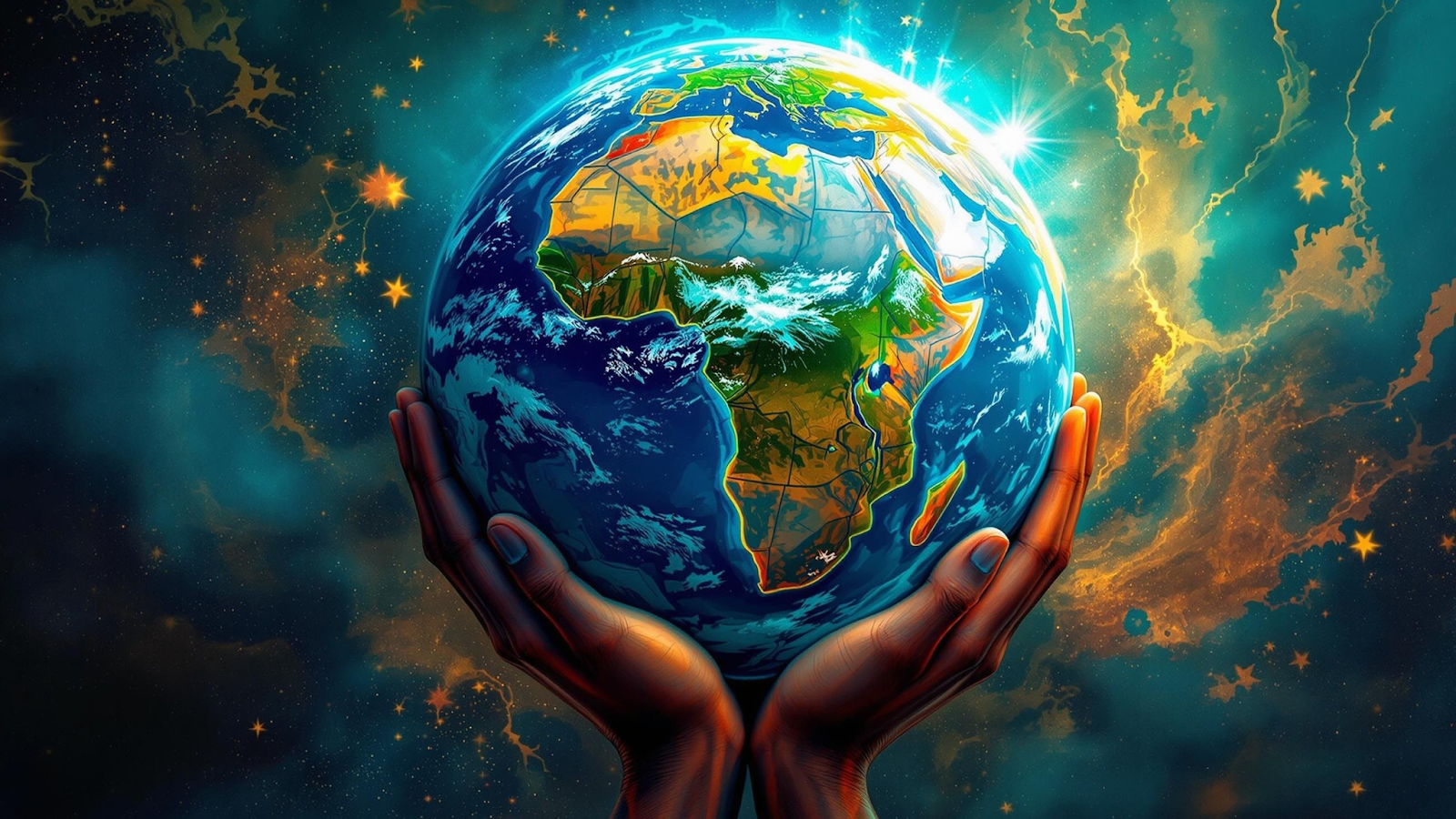Can Africa Save the West?
When the pain of staying in old structures becomes greater than the fear of change, transformation begins.
In much of the Western world, people know their money is losing value. Inflation eats their savings, banks collapse overnight and the money in their bank accounts is not truly theirs. Yet they stay, not because they are unaware, but because stepping into something new is terrifying.
Bitcoin, financial sovereignty, peer-to-peer systems—all of these sound nice, but they are unknown and the unknown is emotionally paralyzing when you still have something to lose. So people stay. They rationalize the irrational. This is however not the case everywhere.
Across the African continent, people are building something new. Not because it’s trendy or ideological, but because their pain is too great to ignore. Instead of staying passive, they choose to test and learn. When the system fails, you either collapse with it—or create. As we witness in Willms' documentary (UNBANKABLE), Africans are strong and brave, so they create. Perhaps these communities hold lessons the West has yet to learn.
Instead of asking how Africa might adopt Western financial tools, the film began to ask: Can Africa Save The West? That shift changed everything. — Luke Willms
Traditional banking systems exclude people through an endless array of barriers—digital and physical. Documentation, collateral, credit history. High interest rates, scarce branches. You name it. The unbanked are not few; they are many. Their exclusion isn’t due to lacking knowledge or ambition—it’s because the financial system was built to include only those who meet its rigid criteria. Designed to be exclusive, not accessible. Endless hoops. Gatekeepers in charge.
But those left outside don’t wait to be let in. They built their own doors, opening the path into a new paradigm. Community-driven financial networks, savings circles, local cooperatives, and informal lending pools are common in Africa. These are not just alternatives; they are often the primary systems of survival. They are peer-to-peer, community-based, and deeply embedded in human connection.
As a Bitcoiner, I see the ethos of our community reflected here: one that refuses to wait for permission, learns from history—even vague failures—and keeps building. Relentless collaboration toward a better future.
From the Unbanked to the Sovereign.
The film shows it plainly: Africans locked out of global banking aren't waiting for permission—they're rewriting finance on their own terms. What emerged isn’t merely an alternative, but a direct challenge to the foundations of the system that rejected them. With minimal infrastructure, they’ve forged working systems: peer-to-peer networks and community trust mechanisms that bypass central banks entirely. In the fire of exclusion, they didn’t break. They built. They’re not reforming the old system. They’re making it obsolete.
Bitcoin Is Not the Centerpiece—The Mindset Is.
UNBANKABLE reveals a thought-provoking truth: Africans aren’t building around Bitcoin—they’re building around sovereignty, community, and confidence. Bitcoin? It’s the tool that fits—aligned with the ethos of self-reliance and the courage to outgrow broken systems.
While the 'developed' world frets over internet outages, lost keys, or instant access, these problems are being solved in places labeled as 'developing.' One of the most important examples I'd like to bring doesn't come from Silicon Valley, but from villages most Westerners don't even expect to exist.
Kgothatso Ngako, the founder of Machankura, built a solution that lets users send Bitcoin via SMS. No smartphone. No app. No internet connection. Just a simple phone, apex technology adapted to basic devices. That innovation didn’t come from comfortable situations—it came from pain. And it’s exactly what the West will need when its own financial systems crack one day.
A New Commodity Emerges.
For the first time in human history, we’ve found a commodity that aligns with nature instead of exploiting it.
Erik Hersman, CEO of Gridless, is one of the visionaries bringing this alignment to life. By building sustainable Bitcoin mining operations in places like Mulanje, Malawi, he demonstrates how green energy and Bitcoin complement each other perfectly. Green energy is abundant, cheap, and often untapped—while Bitcoin is a 24/7, location-independent, global energy buyer that can monetize this surplus power anywhere on Earth.
Bitcoin is mined, not from violence or scarcity, but from energy—particularly abundant, green, renewable energy. It doesn’t need to be extracted from the earth in conflict zones. It can be captured from the sun, the wind, from waterfalls in remote villages. Bitcoin becomes the buyer of last resort for energy that would otherwise be wasted or remain untapped. It incentivizes green infrastructure where no other buyer would go. It flips the old world’s exploitive model on its head.
A Role Model Forged within the Fire of Existential Fear.
Africa isn't leading with capital. It's leading with courage. Not with theory but action. It is not asking for permission. It is moving.
This is how you transform pain into power, how you build a new financial reality. Not out of comfort. But with courage to move beyond past boundaries.
Let me wrap with the film’s core question: “Can Africa save the West?"
Just think about it.
Sinan.
Sinan M
Born in Germany. Raised in a turkish-german family. Free thinker, writer, co-founder of primal-vanguard.com
follow me :




Related Posts
Inflacija: Skriti davek, ki požira vašo kupno moč – kako jo premagati s trdnim denarjem - Burek zgodba
Feb 15, 2026
Mediji lažejo o Bitcoinu — resnica o pranju denarja, ki jo skriva finančni sistem
Feb 08, 2026
Kako kripto kartice in bitcoin plačila v EU in Sloveniji ne delujejo - Regulacije in davki kot glavni krivci
Feb 06, 2026